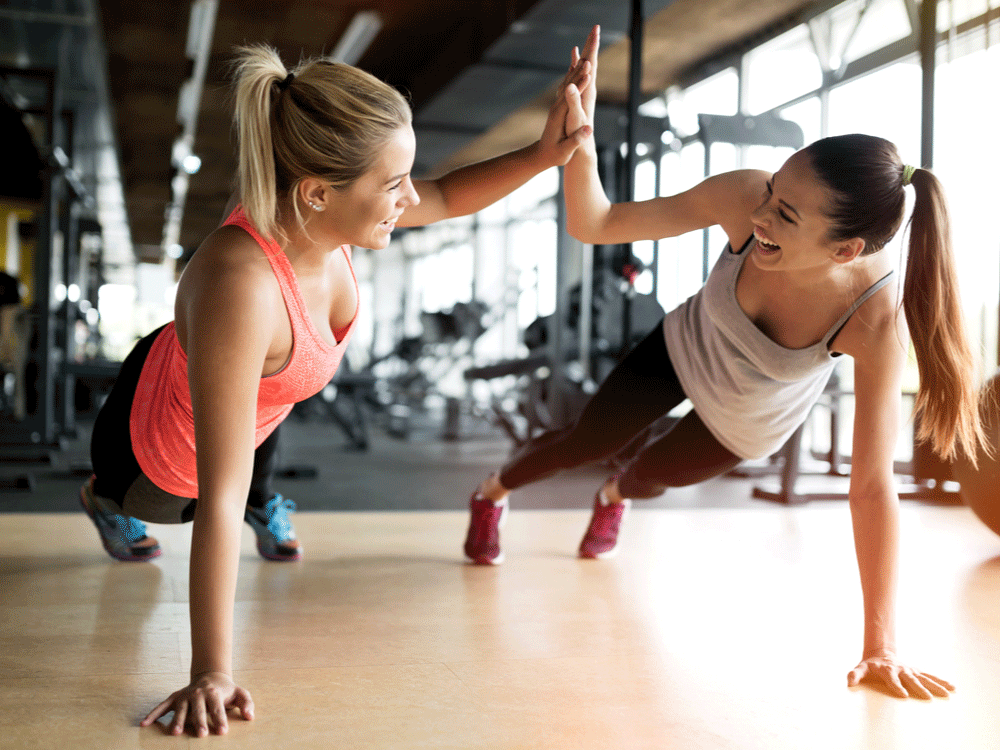Yes, You Need To Fuel Your Body Properly After A Workout
The right post-exercise food choices can make all the difference between getting stronger and getting tired. Here’s what you should eat after working out.

How to eat properly after a workout
Knowing what you should eat after working out can be difficult but your body needs to be fuelled. Whether you’re into running, rock climbing, yoga or weights, you know the feeling – the munchies that hit you after your last sprint, downward-facing dog or biceps curl. We talked to Tristaca Caldwell, a registered dietitian with Halifax-based Fueling with Food and a professor at Acadia University’s School of Nutrition and Dietetics, about the best post-workout bites.
What nutrients does your body need after a workout?
The two things we need most after physical activity are fluid and carbohydrates. “The point of recovery nutrition is to replace the fuels that you used,” says Caldwell. “Your body gets very good at knowing if those fuels are going to be replaced quickly. If they are, your body is more likely to let go of all its stores.”
For fluid, check your sweat rate: Weigh yourself before and after exercise, and drink 1.5 litres for every lost kilogram. For carbs, aim for 1.5 grams per kilo of body weight. So, if you weigh 59 kilograms (130 pounds), you’ll need 90 grams of carbs.
Contrary to popular belief, protein isn’t the star of the show, says Caldwell. “Protein really only becomes important for high-interval training or weight training.”
How soon should you eat after working out?
“It’s important to get fluid and carbohydrates within 30 minutes of exercising. That’s when your body is most able to use these nutrients,” says Caldwell.
Have a snack right away, rather than waiting until you get home to prepare a meal. Try a granola or cereal bar; a fruit cup; a smoothie; dry cereal; trail mix with nuts, seeds and dried fruit; vegetables and hummus; or crackers with cheese. Avoid foods high in fat or fibre, which slow digestion. (Try our granola bars, they are the perfect snack to have handy for an energy boost.)
“Chocolate milk has a really good ratio of protein and carbohydrates – about one gram of protein for every three to four grams of carbs, the ideal ratio for a recovery food,” says Caldwell. “It also has fluid, so you’re knocking off all those things you need in one beverage.” Can’t stomach dairy? Guzzle flavoured soy or almond milk.
Are sports drinks necessary during or after exercise?
“If you’ve been working out for longer than an hour, particularly when it’s hot and you’re sweating a lot, you want to get some kind of sports drink, something with electrolytes in it. The more you sweat, the more you need those electrolytes – sodium and potassium,” says Caldwell. (More of a juice lover? These homemade sports drinks may be your poison instead.)
If your activity is short or not very strenuous, or you’re barely sweating, she advises skipping the sports drink. “The next time you eat, your body will get what it needs.”
And what about protein powders?
“As soon as people get active, they think they need protein powders because there’s so much marketing for them,” says Caldwell. Even someone doing strength training needs as little as 10 to 20 grams of protein afterward – less than what’s typically in one scoop of powder. (Skipping the powder? Try these high-protein recipes!)
“When you get protein from food, you’re getting a lot of other nutrients compared to protein powders, which tend to have more protein than you need and be lower in carbohydrates,” explains Caldwell.
She adds that protein powders can be high in calories. “For recreational athletes – people who are active but not highly competitive – I find they’re taking in more calories than they’re burning through the activity.”
How can you tell if you’re eating properly after a workout?
If you exercise regularly without replacing fluid and carbs quickly or sufficiently, you’ll feel low in energy the next time you work out. “You’ll hit the wall sooner, or can’t work out at the same intensity,” says Caldwell. “You might also find you’re really hungry, and no matter what you eat, you can’t calm the beast. And overall, if you’re not eating enough, you’ll get sick more easily.”




